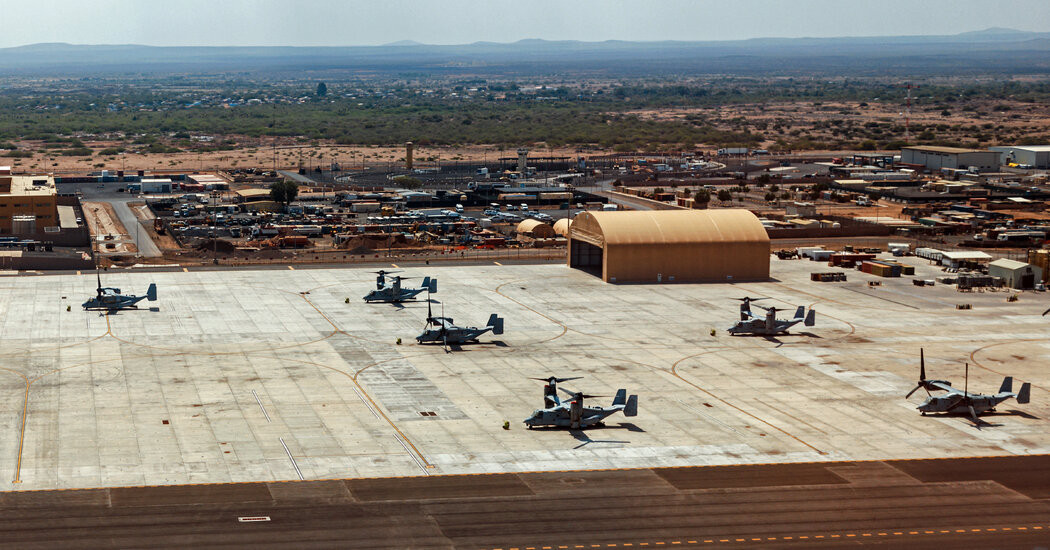

After the Supreme Court ruled that the deportations could move forward, the migrants filed a new lawsuit, challenging their transfer on other grounds.
The fate of eight men, now held on a U.S. military base in Djibouti, is once again unclear after a district court judge in Washington issued a very brief administrative stay that blocked the government from deporting them to South Sudan.
On Thursday afternoon, the Supreme Court ruled that the Trump administration could move forward with its plans to send the men on from Djibouti to the violence-plagued country of South Sudan.
The men have all been convicted of serious crimes in the United States. Before coming to the United States, they hailed from Vietnam, Mexico, Laos, Cuba and Myanmar. Just one is from South Sudan.
After the Supreme Court ruling, lawyers for the eight men filed a new lawsuit arguing that the deportation plan is “impermissibly punitive” under a Supreme Court precedent that bars summarily deporting migrants to places where they will experience an “infamous punishment,” such as hard labor.
On Friday, the attorneys asked Judge Randolph D. Moss of the Federal District Court for the District of Columbia to issue an order blocking the transfer to South Sudan. After the Supreme Court ruled, Tricia McLaughlin, a spokeswoman for the Homeland Security Department, said these “sickos will be in South Sudan by Independence Day,” and, on Friday, a government lawyer said a plane would take off with the men at 7 p.m. Eastern time.
That timeline now seems to be in jeopardy. Judge Moss ruled that the case should be transferred back to the District of Massachusetts, where Judge Brian E. Murphy had been considering an earlier lawsuit brought by the migrants, the one that had led to the Supreme Court ruling. Shortly after 3 p.m., Judge Moss barred the government from deporting the men before 4:30 p.m., which he said was enough time for their lawyers to refile their claim in Massachusetts.



